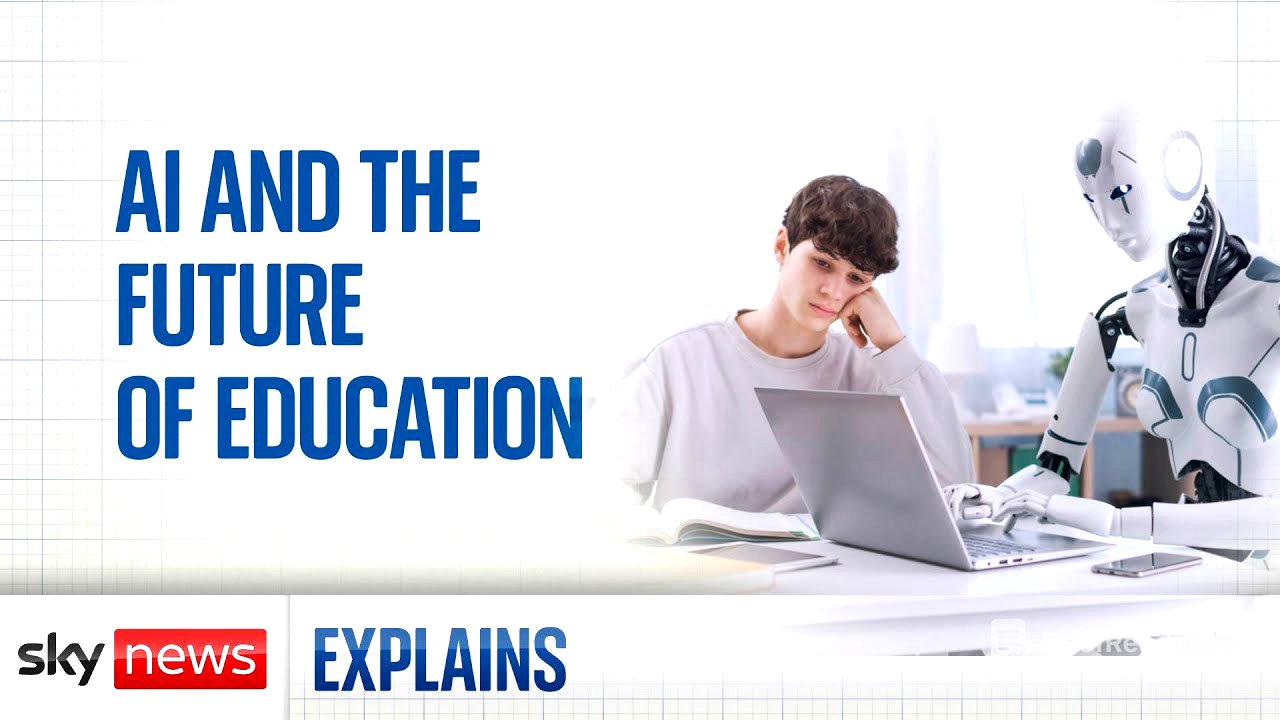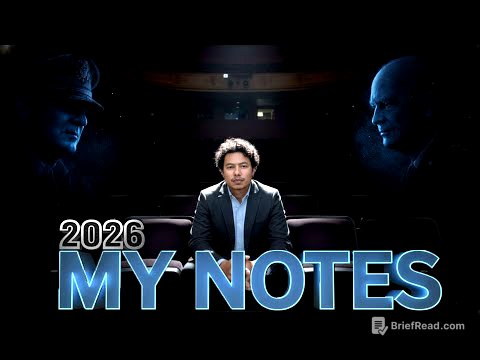TLDR;
The video discusses the increasing use of AI in education, highlighting both its potential benefits and risks. It addresses concerns about cheating, online safety, and the need for regulation and teacher training. The video also explores how AI can enhance learning, personalize education, and streamline administrative tasks for teachers. Ultimately, it calls for a balanced approach to harness AI's power while safeguarding the integrity of education.
- AI is being widely used by students for homework and various educational tasks.
- Concerns exist regarding cheating, exposure to harmful content, and the need for better regulation and teacher training.
- AI offers potential benefits such as personalized learning, efficient data analysis, and streamlined administrative tasks for teachers.
Introduction: AI in Education [0:00]
The video begins by noting that a significant proportion of teachers believe students are regularly using AI for their schoolwork. It introduces artificial intelligence (AI) as technology that mimics human problem-solving and decision-making. The launch of tools like Chat GPT in 2022 has made AI a tempting resource for students, capable of generating ideas, writing essays, conducting research, improving grammar, translating languages, and creating artwork.
The Dark Side: Cheating and Online Safety [1:26]
The discussion shifts to the negative aspects of AI in education, primarily focusing on cheating. Some education boards have banned software like Chat GPT due to concerns about academic dishonesty. The sophisticated nature of AI tools makes it challenging for teachers to differentiate between student work and AI-generated content, with a notable percentage of teachers unable to tell the difference. There are also safeguarding concerns, as AI platforms may expose young people to harmful, biased, or discriminatory content, especially if they bypass age restrictions.
The Bright Side: Enhancing Learning and Teaching [3:35]
The video transitions to the potential benefits of AI in education, asserting its helpfulness in lessons. AI enables faster and more accurate analysis of large data sets, enhancing learning by identifying knowledge gaps, providing instant feedback, recommending resources, and personalizing education. Surveys indicate that many students believe AI improves their grades and that excluding it would negatively impact their education. AI could also extend learning resources to students in remote areas. For teachers, AI can automate marking, analyze student performance, detect plagiarism, and streamline administrative tasks, freeing up their time.
Striking a Balance: Regulation and Training [4:57]
The video addresses how to balance the positive and negative impacts of AI. Teachers advocate for better regulation of AI in education, with a significant percentage believing the government should intervene to police its use. There are also calls for improved training for teachers to help them understand AI concepts, identify cheating, and promote good practices. The government acknowledges AI's potential to transform education and has launched initiatives to research its benefits and risks, aiming to establish a regulatory framework for safe and responsible AI innovation.








![[제40회 골든디스크] 아티스트 대상 - JENNIE (제니)](https://wm-img.halpindev.com/p-briefread_c-10_b-10/urlb/aHR0cDovL2ltZy55b3V0dWJlLmNvbS92aS9neTl5VlVQaF9GVS9ocWRlZmF1bHQuanBn.jpg)
